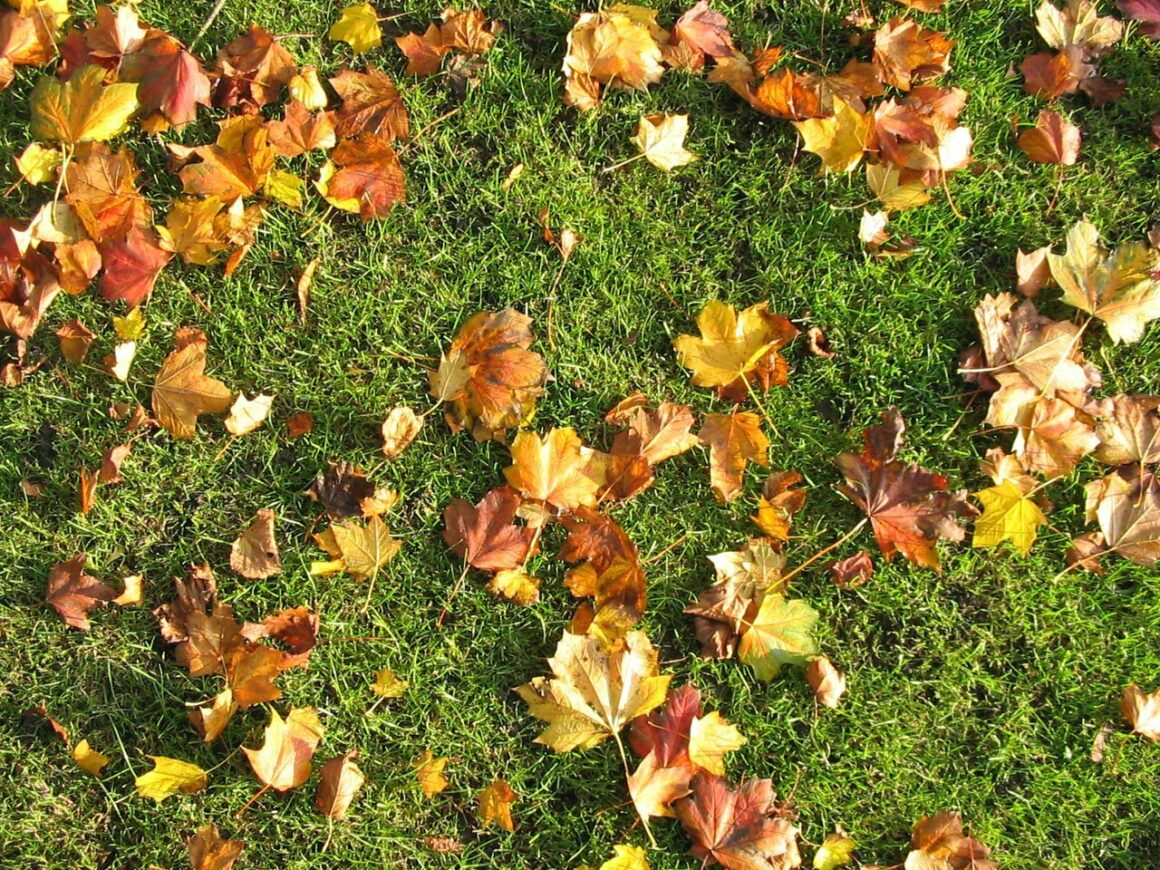Table of Contents Show
When fall comes, leaves fall. This leaves many homeowners wondering “Do leaves provide protection for the grass over winter? Do they harm the grass? What’s the best thing to do?” There’s no hard and fast answer, but as you’ll read below, there are good reasons for each choice
Whether to rake or not rake leaves before winter can depend on the type and number of trees you have, and also on your personal goals for the yard. There’s even a happy medium that incorporates the best aspects of each side of the argument.
The Pro-Leaf-Leaving Stance
Those who advocate letting leaves sit on the grass over winter often cite Mother Nature herself. In a forest, leaves fall to the ground and decompose over the course of fall and winter, acting as a natural fertilizer or mulch for the ground below.
The same thing happens in your yard. Letting leaves fall, rest, and decompose can help contribute to a vibrant lawn next spring.
It’s important to note that leaving a bed of leaves on your grass doesn’t actually “protect” the grass from anything. The grass is dormant over the winter, anyway. It’s made to shut down when the weather turns cold, so leaves on top aren’t ‘protecting’ it from anything it can’t handle anyway.
The Anti-Leaf-Leaving Stance
Many people who are concerned with keeping a pristine lawn rake leaves simply because they don’t like the way they look; they want to see green grass, and that’s all.
From a lawn health standpoint, too many leaves that lie in too heavy a layer can actually do harm to the grass. If they are so thick that they’re still covering the grass in the spring, this can deprive the lawn of sunlight, effectively killing or weakening patches of the yard.
This is especially true of yards with many large, old trees, and it also varies depending on species. Some leaves break down better than others.
Birch, ash, and maple leaves decompose rather quickly and are very unlikely to smother grass—but tougher leaves like beech and oak take longer and may still be around by spring.
Read Also:
A Happy Compromise
Many people settle somewhere in between, by waiting until the leaves are dry and shredding them with a mulching lawn mower. Chopped into small pieces, the leaves decompose much easier and deliver helpful nutrients to the soil below.
Yet due to their size, they don’t create a blanket over the grass, which means they won’t block the sun and cause dead spots.
If you admire the mulching capability of leaves but don’t like the way they look in your yard in the fall, consider incorporating them into compost and spreading them over your garden in the spring.
So the next time you and a neighbor get to chatting and someone asks “Do leaves provide protection for the grass over winter?” you’ll have not only an answer (or two) but a helpful suggestion—the mulching mower—as well.
Resources
- “Lawn FAQs – Late Fall and Winter Preparation.” University of Illinois Extension – https://web.extension.illinois.edu/lawnfaqs/winterprep.cfm

